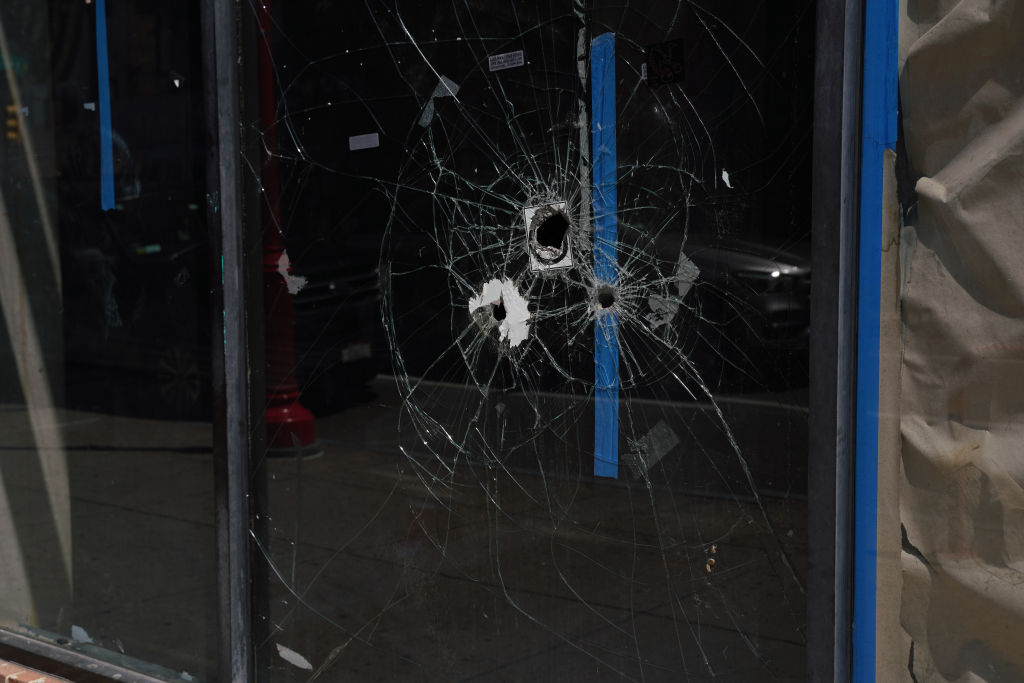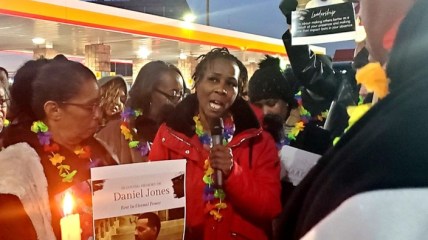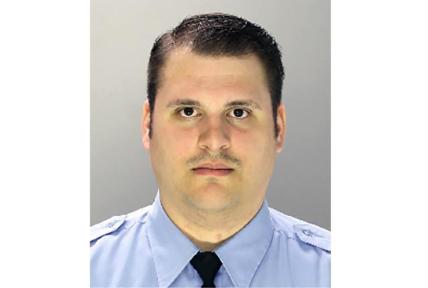Issues with a violence-intervention program in Philadelphia highlight the hurdles for sustainable violence-prevention work
A recent report on the Community Crisis Intervention Program reveals the challenges of community-based violence-prevention efforts.
When the Community Crisis Intervention Program (CCIP) was launched a few years ago in Philadelphia, it was part of a push by the city to invest in more community-based violence-prevention efforts to reduce violent crime.
CCIP’s work fits squarely into the violence-interruption model that gained significant attention nationally as many cities across the country struggled with gun violence over the past couple of years. In Philadelphia, the program uses street outreach workers, or “credible messengers,” to target hotspots in areas that are struggling with crime.

On the heels of the murder of George Floyd and the racial reckoning that occurred in the summer of 2020, cities and local governments were grappling with calls to defund the police and radically reimagine public safety. Community-based violence prevention and intervention programs were at the forefront of the proposed alternatives to the age-old policing model.
The credible messengers, who tend to have strong ties to the communities, try to mediate conflicts before they get violent, offer resources and typically have a good read on what’s happening in the streets. The root of their work is to develop meaningful relationships with the most at-risk people.
This year, the group has had success in helping some at-risk people relocate to safer areas. In addition, the CCIP has helped many families and individuals with things like housing, transportation, food and schools. The program also has hosted plenty of neighborhood activities such as barbecues, giveaway events and prayer walks.
The Rev. Mark Tyler was part of a coalition of Philadelphia community leaders who in 2018 wanted the city to invest in more of these grassroots programs to tackle gun violence. “We were calling on the city to put more money in the hands of credible messengers,” he says.
“What we’re talking about is getting in front of the violence, doing something before anybody has even picked up a gun, to talk them out of it,” George Mosee Jr., executive director of the Philadelphia Anti-Drug Anti-Violence Network (PAAN), which runs CCIP, told WHYY News in Philadelphia earlier this year. “And at the same time provide resources: jobs, counseling, whatever it is they may need.”
Erica Atwood was also instrumental in getting the city more involved with efforts like CCIP. Her work in community outreach and advocacy led her to be named the senior director of the city’s Office of Policy and Strategic Initiatives for Criminal Justice and Public Safety. Her office oversees the Violence Prevention Office, which in turn oversees PAAN and the CCIP.
“We do not value credible messengers at the level of which we should, and we cannot reduce violence in any sustainable way if we do not have credible messengers and we do not have violence interruption programs,” Atwood says.
Success for these groups can vary from community to community, but in the case of Philadephia, the city wants to know how many at-risk people the credible messengers are engaging with, how many conflicts they are resolving and how many community services they connect people to.
But today, the CCIP is struggling. A recent independent report by the American Institute for Research, authorized by the city, shows a multitude of problems with the program. There is a lack of leadership since the program does not have a full-time director (which fell under the responsibility of PAAN), there are also reports of understaffing and a lack of training for the staff. As a result, many of the workers say they feel they are not all “on the same page” in terms of the overall purpose of the program.
“There seems to be a divide between generations of workers at PAAN or those with more or less recent experience with violence/justice involvement,” the report says. “This divide seems to affect the approach that different staff take to their work in the community and what they believe is needed to work effectively in the community.” The report is phase one of a two-part evaluation that will be conducted.
Atwood, who started her city position in 2020, said that prior to the pandemic, she knew there were issues that need to be addressed with the CCIP. “I couldn’t put my finger on it, but I knew there were things that we needed to course correct,” she said. That’s how the evaluation came to be.
In a statement, Mosee said that PAAN is taking the results of the report seriously and is committed to implementing evidence-based practices for addressing gun violence. “That’s why we are pleased to be working closely with the city’s independent auditor on a review of our programs. We look forward to discussing the findings and better explaining the nuances of our approach while remaining committed to working with the auditor to implement changes that ensure we can be the most effective organization possible,” the statement said.
The issues with the program couldn’t come at a worse time for the city. Philadelphia is on track to have a third straight record-breaking year for homicide. In addition to the killings, other violent crimes continue to increase. Carjackings have significantly gone up in the city this year.
This is particularly concerning for residents as other cities across the country are experiencing a downward trend with homicides after the peaks of 2020 and 2021. There was hope that the CCIP would be more effective after the city invested $5.3 million in its last year with funds from the city budget.
The evaluation has made some community members in Philadelphia fearful that it could lead to these kinds of programs losing their funding and support, especially considering the amount of money the program was given compared to what law enforcement gets on a yearly basis.
“We’re spending close to a billion dollars on policing alone, and the [murder] numbers are still going up, and no one ever says we’re not getting our money’s worth from the police,” Tyler explained. He said he’s not suggesting getting rid of the police, and that’s not the consensus in the city as far as he sees it, but he stressed that it shouldn’t be an either-or scenario, which tends to be the sentiment around these kinds of programs when they don’t yield immediate results.
“The establishment of violence prevention and gun safety and community safety is relatively new over the last decade or so, and over the last few years there’s been more of them established, which is a good thing, but there are growing pains,” said Paul Carrillo, the director of the Center for Violence Intervention at the Giffords Law Center to Prevent Gun Violence, a national nonprofit group.
As Carrillo explained it, cities will create these programs, and it’ll be enough to get started but not enough to really have a full impact. “Folks will then say it’s failing or it’s not working and we’re wasting money, but in reality, there’s just not enough time, structure and capacity at the beginning.”
Fortunately for Philadelphia, the city says there is no indication that this program will lose its funding. “If anything, it’s the opposite,” Atwood said. “We now have to make the necessary investments and training and sustainability and accountability, so we don’t get off track again.”
The evaluators made several recommendations for the CCIP, including finding a full-time director, coming up with a cost analysis for community needs and collecting more thorough data and analyses of the program. City officials have already begun addressing those recommendations, according to Atwood.
While this particular program has struggled, the city’s response to it is something criminal justice experts have deemed necessary as more municipalities try to implement similar efforts to stem the violence.
“Experience shows that there is no way for a city to sustainably reduce the violence that does not include partnerships between the community and government,” said Thomas Abt, the founding director of the new Violence Reduction Center at the University of Maryland. “What you’re seeing in many cities is lip service to the principles of anti-violence reduction but then falling short on actual implementation — a big part of that is a lack of partnership.”
More crucially though, experts, community leaders and even law enforcement officials have stressed that the long-term solutions to gun violence are going to take time and consistent coordination.
“No one organization can tackle this problem alone. We know that anti-violence initiatives can only be successful with every stakeholder at the table, from city officials to peer organizations and community leaders. This report has redoubled our commitment to strengthening these partnerships,” Mosee said in the statement.
TheGrio is FREE on your TV via Apple TV, Amazon Fire, Roku, and Android TV. Please download theGrio mobile apps today!


